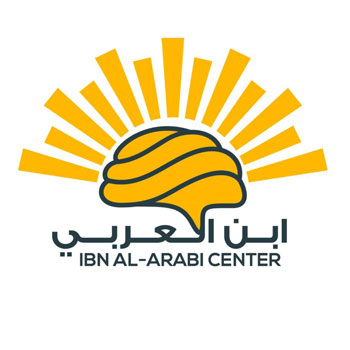ديناميكيات واستراتيجيات إدماج تطبيقات الذكاء الاصطناعي في عملية الإشراف التربوي لدى مشرفي تقنيات المعلومات في سلطنة عمان
معرّف الغرض الرقمي:
https://doi.org/10.56989/benkj.v4i10.1242الكلمات المفتاحية:
الذكاء الاصطناعي ، الإشراف التربوي، التعليم، الاستراتيجياتالملخص
هدفت الدراسة إلى التعرّف على الديناميكيات التي يحصل وفقها إدماج تطبيقات الذكاء الاصطناعي، وإلى الاستراتيجيات المستخدمة في توظيفها لدى مشرفي تقنيات المعلومات في سلطنة عمان. اعتمدت الدراسة على المنهج الكيفي وتوسّلت بالمقابلة أداة من أجل جمع المعطيات، حيث تمّ استجواب سبعة عشر (17) مشرفا تربويا من مشرفي تقنية المعلومات. توصلت نتائج الدراسة إلى أن ديناميكية إدماج تطبيقات الذكاء الاصطناعي كانت عن طريق ملتقيات وورش تطبيق الذكاء الاصطناعي في التعليم والتعلم الذاتي للمشرف التربوي، ولقد واجه توظيف تطبيقات الذكاء الاصطناعي عددا من التحديات مثل: تكلفة التطبيقات وكثرتها، وقلة الخبرة في توظيفها، قلة القبول من الميدان التربوي، وصحة البيانات وقلة الدعم الفني، وضعف الشبكات وقلة توافر الأجهزة الحديثة، كما توصلت الدراسة إلى أن المشرف التربوي اعتمد عددا من الاستراتيجيات لتوظيف تطبيقات الذكاء الاصطناعي في عمله تمثلت في ممارسات القيادة والتوجيه، التخطيط والتطوير، والتدريب والدعم، والتقييم والمتابعة، وذلك من أجل تحسين جودة التعليم، وزيادة كفاءة العمل، واتخاذ قرارات أفضل، كما أوضحت الدراسة أهم التطبيقات التي تم استخدامها في التخطيط وتحليل زيارات الإشرافية للمعلمين، وسجلات المعلمين، وأعمال الطلبة مثل Chat GPT، وأوصت الدراسة بتوفير الموارد المادية والبيئة المناسبة لتوظيف تطبيقات الذكاء الاصطناعي، كما أوصت بتدريب المشرفين وإلحاقهم بدورات متخصصة في توظيف تطبيقات الذكاء الاصطناعي في مهام المشرف التربوي، واستحداث قسم أو إيجاد لجنة مختصة للذكاء الاصطناعي في دائرة الإشراف تكون مهامها الرئيسة توفير الدعم التقني للمشرفين واطلاعهم على كل ما هو جديد في الذكاء الاصطناعي في المجال الإشرافي، وابتكار وظيفة جديدة تعرف باسم "فني/خبير ذكاء اصطناعي" في الوزارة والمديريات والدوائر الإشرافية والمدارس لتقديم الدعم الفني للمشرف والموظف والمعلم، ومدراء المدارس في هذا المجال.
The study aimed to identify the dynamics according to which artificial intelligence applications are integrated and the strategies used in employing them among information technology supervisors in the Sultanate of Oman. The study relied on the qualitative approach and used interviews as a data collection tool, where seventeen (17) educational IT supervisors were questioned. The results of the study revealed that the dynamic integration of artificial intelligence applications was through forums and workshops for applying artificial intelligence in education and self-learning for the educational supervisor. Employing artificial intelligence applications faced a number of challenges such as: the cost and abundance of applications, lack of experience in employing them, and lack of acceptance from the field. Educational issues, data accuracy, lack of technical support, weak networks and lack of availability of modern devices. The study also found that the educational supervisor adopted a number of strategies to employ artificial intelligence applications in his work, including leadership and direction practices, planning and development, training and support, evaluation and follow-up, in order to improve the quality of education, increase work efficiency, and make better decisions, as it explained. The study included the most important applications that were used in planning and analyzing supervisory visits to teachers, teachers’ records, and students’ work, such as Chat GPT, the study recommended providing material resources and an appropriate environment for employing artificial intelligence applications. It also recommended training supervisors and enrolling them in specialized courses in employing artificial intelligence applications in the tasks of educational supervisors, and creating a department or creating a specialized committee for artificial intelligence in the supervision department whose main tasks would be to provide technical support to supervisors and inform them of everything that is new in artificial intelligence in the supervisory field, and the creation of a new job known as “artificial intelligence technician/expert” in the ministry, directorates, supervisory departments, and schools to provide technical support to the supervisor, employee, teacher, and school principals in this field.
المراجع
الإبراهيم، عدنان (2002): الإشراف التربوي أنماط وأساليب، مؤسسة حمادة للدراسات الجامعية والنشر والتوزيع، إربد.
الجهني، نوال صويلح حمدان (2019): تصور مقترح لبرنامج يعتمد على الذكاء الاصطناعي لتحديد الاحتياجات التدريبية للمعلمين وتنمية قدراتهم المهنية، مجلة الدراسات الإنسانية والأدبية، 2(19)، 1-28.
الرمحي، إبراهيم محمد، والسعيدي حميد مسلم (2024): تصورات المشرفين التربويين عن الفرص التي يقدمها الذكاء الاصطناعي للتعليم في سلطنة عمان. (الملتقى الدولي 26-27فبراير2024).
سبيلا محمد، والهرموزي نوح (2017): موسوعة المفاهيم الأساسية في العلوم الإنسانية والفلسفية. المتوسط.
سلطان، سلوى عبد الأمير (2017): دور جودة الإشراف التربوي في تنمية المعلمين المهنية، سلطنة عمان. ص22.
الشرهان، صلاح (2024): استراتيجيات دمج الذكاء الاصطناعي في الأنظمة التعليمية: نحو تعليم جديد وتنمية مستدامة. (الملتقى الدولي 26-27 فبراير2024)
العبري، فاطمة سعيد، والمسلمي، فاطمة صقر، ومعد، أحمد (2024): سيناريوهات بديلة للإشراف الإداري والتربوي في عصر الذكاء الاصطناعي بمحافظة شمال الباطنة بسلطنة عمان (الملتقى الدولي 26-27 فبراير 2024).
العبيداني، خلود أحمد (2024): توظيف تطبيقات الذكاء في أساليب الإشراف التربوي القيادي التحويلي. (الملتقى الدولي 26- 27 فبراير2024).
العواد، محمد (2021): الذكاء الاصطناعي ليس مجرد روبوت. كُتّاب.
عوض، شريف محمد (2023): علم الاجتماع التطبيقي وتطبيقات الذكاء الاصطناعي. الآفاق.
الكلباني، سعيد محمد (2024): تطبيقات الذكاء الاصطناعي في التعليم. كنوز المعرفة.
الكوري، أثير حسني، والسندي، علي كاظم، والشكيلي وليد زايد، العامري، دلال محمد (2024): درجة ممارسة المشرفين التربويين الكفايات الإشرافية في عصر الذكاء الاصطناعي من وجهة نظر المعلمين (الملتقى الدولي 26-27 فبراير 2024).
كوفان، عبد الرحمن، واليافعي، فاطمة عبد الله (2024، فبراير 26-27): تطوير مهام الإشراف التربوي في ضوء بعض تطبيقات الذكاء الاصطناعي (جلسة مؤتمر)، الملتقى السنوي الدولي الرابع مستقبل التعليم في عصر الذكاء الاصطناعي، كلية التربية، جامعة السلطان قابوس، سلطنة عمان، مسقط.
مار، برنارد، ووارد، مات. ترجمة عائشة يكن حداد (2022): تطبيقات الذكاء الاصطناعي. العبيكان.
مكتب التربية لدول الخليج العربي (1985): إعلان مكتب التربية العربي لدول الخليج لأخلاق مهنة التعليم، مكتب التربية العربي لدول الخليج: الرياض.
وزارة التربية والتعليم (2023أ): موقع وزارة التربية والتعليم، https://home.moe.gov.om/.
وزارة التربية والتعليم (2023ب). دليل المستخدم الذكاء الاصطناعي أدواته والتوعية باستخداماته. المديرية العامة لتقنية المعلومات دائرة الخدمات الرقمية.
اليونيسكو (2023): الذكاء الاصطناعي في التعليم. مسترجع من https://ar.unesco.org/themes/ict-education/ai-in-education.
Abbas, W., Ahmed, M., Khalid, R., & Yasmeen, T. (2017). Analyzing the factors that can limit the acceptability to introduce new specializations in higher education institutions. International Journal of Educational Management.
Amal, Al-Kiyumi., Waheed, Hammad., Waheed, Hammad. (2019). Instructional supervision in the Sultanate of Oman: shifting roles and practices in a stage of educational reform. International Journal of Leadership in Education, doi: 10.1080/13603124.2018.1543570
Amal, Al-Kiyumi., Waheed, Hammad., Waheed, Hammad. (2020). Preparing Instructional Supervisors for Educational Change: Empirical Evidence from the Sultanate of Oman: SAGE Open, doi: 10.1177/2158244020935905
Boudon, R (1991). Individualisme et holism dans les sciences sociales.” LES CLASSIQUES DES SCIENCES SOCIALES CHICOUTIMI, QUÉBEC http://classiques.uqac.ca/
Coleman, J. S. (1988). Social capital in the creation of human capital. American j
Collins, A., & Halverson, R. (2018). Rethinking education in the age of technology: The digital revolution and schooling in America. Teachers College Press
Gérald Gaglio (2012). Sociologie de l’innovation, Paris, PUF, coll. Que sais-je ?
Homans, G. C. (1949). The strategy of industrial sociology. American Journal of Sociology, 54(4), 330-337.
John McCarthy, Marvin Minsky, Nathaniel Rochester, and Claude Shannon. A Proposal for the Dartmouth Summer Research Project on Artificial Intelligence, 1955.
Homans, G. C. (1958). Social behavior as exchange. American journal of sociology, 63(6), 597-606.
Homans, G. C. (1974). Social behavior: Its elementary forms.
Huberman, A. M. (1973). Comment s'opèrent les changements en éducation : Contribution à l'étude de l'innovation. Paris: Unesco, BIE.
A. Akour, H. Muhammad Alshurideh, H. M. Alzoubi, M. T. Alshurideh and Y. Ahmad Antouz, (2023). Integrating Artificial Intelligence in Improving Educational System: The Mediating role of Smart Learning. International Conference on Business Analytics for Technology and Security (ICBATS), Dubai, United Arab Emirates, pp. 1-5, doi: 10.1109/ICBATS57792.2023.10111284
Khadija, Alhumaid., Shamma, Al, Naqbi., Deena, H., Elsori., Maha, Al, Mansoori. (2023). The adoption of artificial intelligence applications in education. International journal of data and network science, doi: 10.5267/j.ijdns.2022.8.013
Kraishan, Osamah M. (2023). Features of Applying Artificial Intelligence in the Eighth Grade Science Curriculum in the Sultanate of Oman. Journal of Higher Education, Theory, and Practice, doi: 10.33423/jhetp.v23i9.6140
Lamiya, Al-Shanfari., Shubair, Abdul, Karim, Abdullah. (2023). Instructors’ Perceptions of Intelligent Tutoring Systems and Their Implications for Studying Computer Programming in Omani Higher Education Institutions. International journal of membrane science and technology, doi: 10.15379/ijmst.v10i2.1395
LANDECKER, W. S. (1965) « Les types d'intégration et leur mesure », dans R. BOUDON et P. LAZARSFELD (éds.) Le Vocabulaire des sciences sociales: Concepts et indices, collection « Méthodes de la sociologie », Paris, Mouton: 3
Mieczysław, L., Owoc., Agnieszka, Sawicka., Paweł, Weichbroth. (2021). Artificial Intelligence Technologies in Education: Benefits, Challenges and Strategies of Implementation. arXiv: Computers and Society,
Muldoon, J., Liguori, E. W., Bendickson, J., & Bauman, A. (2018). Revisiting perspectives on George Homans: correcting misconceptions. Journal of Management History, 24(1), 57-75.
Nasser, Al, Harrasi., Mohamed, Salah, El, Din., Badriya, Al, Balushi. (2021). Towards an Artificial Intelligence (AI)-Driven Government in Sultanate of Oman: Transforming and Augmenting Leadership Competencies. doi: 10.4018/978-1-7998-2402-2.CH016
Osama, A., Marzouk. (2021). Accrediting Artificial Intelligence Programs from the Omani and the International ABET Perspectives. 462-474. doi: 10.1007/978-3-030-80129-8_33
Rahma, Suliman, Alkharousi. (2019). Reimaging the role of the information professionals in the educational process: the case of the Sultanate of Oman. Advances in Social Sciences Research Journal, doi: 10.14738/ASSRJ.65.6577
Salim, Al-Hajri., Syed, Ghayas., Abdelghani, Echchabi. (2018). Investigating the e-learning acceptance in Oman: Application of structural equation modelling approach. Journal of Computer Science, doi: 10.3844/JCSSP.2018.368.375
Slimi, Zouhaier. (2022). Artificial Intelligence Implementation In Omani Higher Education; Logistics Studies, Imcoi As A Case Study. Shanghai Ligong Daxue xuebao, 24(02):116-146. doi: 10.51201/jusst/22/0154
SAVOIE-ZAJC, L. (1998) « L'entrevue semi-dirigée » (chap. 11), dans B. GAUTHIER (dir.) Recherche sociale. De la problématique à la collecte des données, Sainte-Foy, Presses de l'Université du Québec: 263-285.
Smart Nation Singapore. (2019). National Artificial Intelligence
Strategy: Advancing our Smart Nation Journey. Retrieved From https://www.smartnation.gov.sg/files/publications/national-ai-strategy.pdf
Thagard P. Computational philosophy of science, The MIT Press, 1 Edition, London, England, 1988, p.02.
Yutuan, Zhang., Guangjie, Ren., Dongqing, Wang. (2022). Ethical Challenges and Strategies of Artificial Intelligence Applications. doi: 10.1109/EITT57407.2022.00025.
التنزيلات
منشور
كيفية الاقتباس
إصدار
القسم
الرخصة
الحقوق الفكرية (c) 2024 مجلة ابن خلدون للدراسات والأبحاث

هذا العمل مرخص بموجب Creative Commons Attribution-NonCommercial 4.0 International License.




























